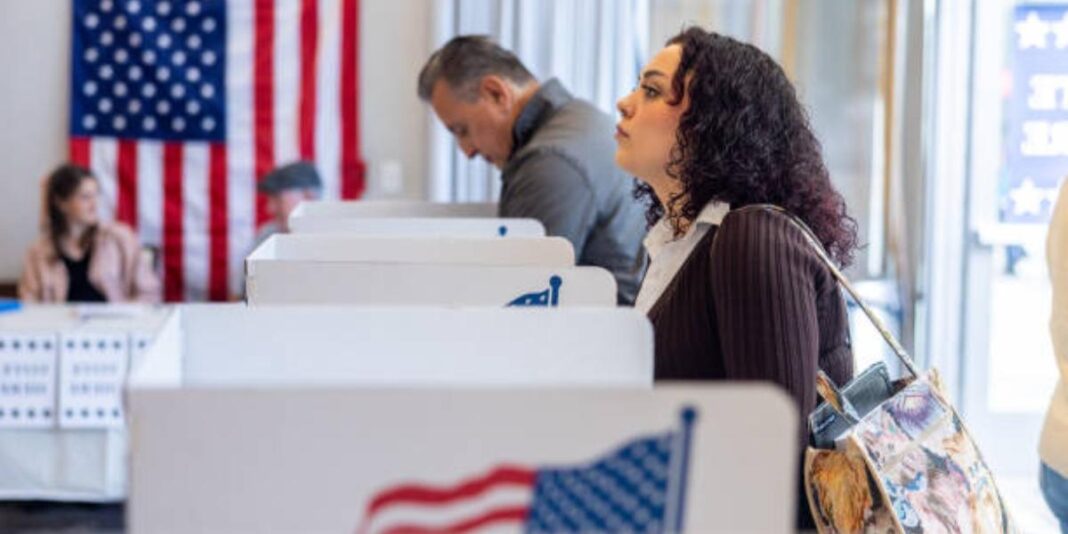BTN News: With the 2024 U.S. Presidential Election just around the corner, a controversial legal loophole in Wisconsin’s voting law has come to light, potentially allowing thousands to vote without a photo ID. This development has raised concerns among voters and activists, especially as the election approaches. The Wisconsin law currently permits “indefinitely confined” voters—typically seniors, individuals with disabilities, or those suffering from illnesses—to vote without presenting a photo ID. While this provision aims to ensure accessibility, critics argue it may undermine voter security and disproportionately affect minority communities. As Wisconsin’s electoral laws clash with the rights of its citizens, this debate highlights broader issues of voter access, election security, and potential disenfranchisement.
Wisconsin’s Voting Loophole: Who Benefits?
A recent report by the Milwaukee Journal Sentinel reveals that a significant number of voters in Wisconsin could be impacted by this loophole. The state’s law allows individuals classified as “indefinitely confined” to cast their ballots without a photo ID—potentially benefiting thousands of seniors, people with disabilities, and those with certain medical conditions. This provision, while originally intended to aid vulnerable groups, is now at the center of a heated debate over election integrity and voter rights.
“Indefinitely Confined” Voters: A Necessary Exception or a Security Risk?
The law’s defenders argue that it provides a necessary accommodation for voters who genuinely cannot obtain a photo ID. Yet, opponents express concerns that this exemption could be exploited, leading to potential voter fraud or manipulation. The clash has escalated into a broader discussion about balancing electoral security with inclusive voting practices.
Activists Voice Concerns Over Disenfranchisement
Civil rights activists in Wisconsin have criticized the current voter ID requirements, arguing that they create unnecessary barriers for certain groups, particularly minority communities. According to a study by Kenneth Mayer of the University of Wisconsin-Madison, the existing identification laws have disproportionately impacted Black voters and those from low-income backgrounds in Milwaukee.
Impact on Milwaukee’s Black Voters: An Unequal Burden?
The study by Mayer highlights a concerning trend: the state’s stringent voter ID requirements have led to lower voter turnout among Black and low-income citizens. Activists assert that while the new loophole may provide some relief, it does not address the root issue of disenfranchisement. They call for broader reforms to ensure fair and equal access to the ballot.
How to Vote in the 2024 U.S. Presidential Election: Key Points to Know
As November approaches, millions of Americans are preparing to vote in the 2024 Presidential Election, which will take place on the first Tuesday after the first Monday in November. This year’s election sees Vice President Kamala Harris representing the Democratic Party and former President Donald Trump running for the Republican Party. Eligible voters must be U.S. citizens aged 18 or older, and must be registered to vote in their respective states.
Requirements and Restrictions: Who Can and Cannot Vote?
It is crucial to understand the voting requirements: only U.S. citizens can vote in federal, state, and local elections. Those holding a Green Card, or permanent resident status, are not eligible to vote, and any attempt to do so is considered a felony. Voters should also be aware of the specific ID requirements in their state, as these can impact their ability to cast a ballot.
The Larger Debate: Balancing Access and Security in U.S. Elections
This latest development in Wisconsin is part of a broader, national debate over voting laws and election security. As states like Wisconsin strive to find a balance between securing elections and ensuring every eligible voter can participate, the controversy over the “indefinitely confined” voters highlights the complexities involved. The 2024 election may well see these issues play out on a larger stage, potentially shaping future policies on voting rights in the U.S.
Conclusion: A Critical Moment for Voter Rights and Election Integrity
The upcoming 2024 Presidential Election is set against a backdrop of heightened scrutiny over voter rights and election integrity, especially in swing states like Wisconsin. As debates continue over who should be allowed to vote and under what conditions, it is clear that the intersection of law, rights, and security will be at the forefront of this electoral season. Voters, activists, and lawmakers alike will need to navigate these challenges carefully to ensure that democracy remains fair, free, and accessible to all.


